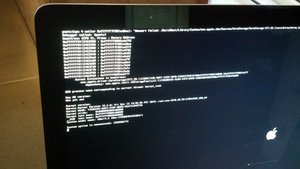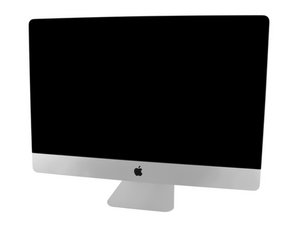Why does this machine keep kernal panicking
I have a 2013 iMac with a fusion drive but it won't boot and kernal panics every time. I have tried booting to the Recovery partition (Cmd + R), Booting off another drive, (Option), booting into diagnostics mode (D) and booting into target mode (T). The only one that works is Target mode and it stayed on all night. This morning I decided to remove all RAM sticks except for one and see what happens. It kernal panicked again. Big surprise. I think its a bad logic board but would love a second opinion.... Any one???
Here is a picture of the screen when it dies. It reboots itself pretty quickly afterwards so I had to be fast on the shutter.
Thanks!

Is this a good question?

 6
6  3
3  4
4 